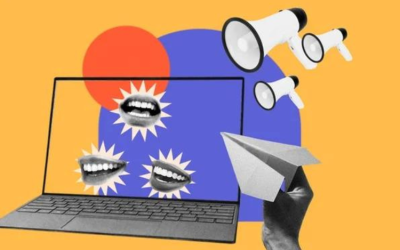This post was written by Lindsay Amico, a mindset coach and the founder of Picture Perfect Mind LLC
To say we’re all experiencing stress is an understatement.
Since the pandemic, mental health has gone from a “nice-to-have” initiative to a necessity. According to a 2021 report from Mental Health America, 9 in 10 employees admit that workplace stress impacts their mental health and 3 in 5 employees are not receiving adequate support from their supervisors to help manage stress.
To make things worse, successful leaders are not immune to their own stress. According to the Harvard Business Review, C-level employees and executives are actually more likely than others to report at least one mental health symptom. Remember that example of putting your own oxygen mask on before helping someone else? If leaders are struggling with their own mask, we’re all flying solo.
So what’s the solution? We have to start with ourselves. Yes, we must advocate for policy change and an open culture around mental health, but first we need to acknowledge our own stress. If we’re not okay, we cannot create change.
Start by asking yourself, how do I behave emotionally, behaviorally, and physically when I’m under stress? This can be anything from insomnia, to headaches, impatience, to blaming or shaming others, to overeating…you get the picture.
Next, we need to understand that stress is our body’s way of protecting us from danger and uncertainty. While the symptoms are certainly not pleasant, we are doing our best with what we have. It’s essential that we understand that stress does not make us a weak, bad, or “less than” person. I like to ask my clients how they would treat a friend who is going through their current experience.
Once you have an understanding of what you’re experiencing, let’s drop back into our body. The mind is constantly projecting into the future or the past, so what happens when we create a moment of presence?
Try to think of the last time you were fully present. Unless you have a dedicated meditation practice, you might struggle. Here’s a few easy tips to get back in the present moment and calm your mind.
1) Connect to your breath
This can be as easy as putting on your favorite song and breathing in for four, holding for four, releasing for four. See if you can notice the breath coming in through your nostrils and out through your mouth. When we’re stressed we tend to breathe from our chest, so another option is to see if we can bring our breath down into our diaphragm.
2) Do something for ten minutes without looking at your phone
This could be doing the dishes, answering emails, or taking a walk. Every time your mind wanders, just simply notice and come back to the task at hand. When your mind wanders, don’t be hard on yourself, it’s doing its job!
3) 5 Senses Exercise
When you’re stuck in your head, notice five things you see, four things you feel (your clothing, your chair beneath you), three things you hear, two things you smell, and one thing you taste. Once you’re back in your body you may be able to gain a better perspective and realize that the danger your mind has created is not real.
4) You Are Not Your Thoughts
Start to become aware of your thoughts and how they make you feel. I always like to ask myself, “Is this true?” For example, say you missed a deadline at work. Maybe you think the person is mad at you. Simply notice this train of thought and remember, it’s trying to protect you. Even just acknowledging the thought might not be true can deliver some relief.
These simple steps are just the beginning. There’s not a one-size-fits-all when it comes to our mental health, but recognizing the power of the present moment is a great place to start.
When you start putting yourself as a priority, whether it’s bringing in self-awareness, having a vulnerable conversation, hiring a coach or a therapist, or setting boundaries…this makes you a more effective leader and allows others to feel comfortable doing the same.

Lindsay Amico is a mindset coach and the founder of Picture Perfect Mind LLC. Her business focuses on helping people to feel better on a day to day basis with mindfulness, thought management, and motivational tools. With an approach that goes beyond stress reduction, Lindsay provides professionals with the power to release limiting beliefs and connect to their true purpose.
You can contact Lindsay at pictureperfectmind@gmail.com and check out her website at pictureperfectmind.com. Lindsay offers free virtual community meditations, register for her next one here.
















